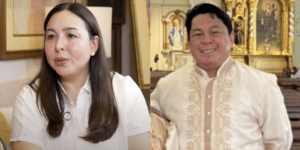THE SECURITIES and Exchange Commission is investigating a non-government organization (NGO) that styles itself as a “watchdog” against scams but is itself peddling investment securities.
At least four investors who claim to have been duped by the Alliance of Networkers of the Philippines Organization Inc. (Anpo), led by one Jose Olinares Jr., have filed separate complaints in the Quezon City prosecution office.
The complainants filed separate criminal charges of syndicated swindling against Olinares—also known as “JR Rosales” and at least eight of his associates, including common-law wife Nenia Vasquez, known to the investors as the treasurer and board trustee at Anpo. Olinares is the founding chair and organizer of Anpo.
In a meeting with SEC officials on Wednesday, the complainants—all of whom met Olinares because of his supposed anti-scam advocacy—had been victims of other investment scams who had looked up to him as someone with a “noble crusade.”
They said Olinares had claimed his group had lawyers to assist the victims if they would sign up for membership in Anpo.
But the SEC became suspicious as the organizations “accredited” by Anpo included those under investigation, like Emgoldex which had been exposed earlier as an investment scam.
Jose Aquino, director of the SEC’s enforcement and investor protection department, said in an interview that more Anpo victims had come forward to complain.
Aquino said only SEC had the authority to investigate securities violations. “He (Olinares) is not authorized to do that. If he wants to help, well and good, but he still has to cooperate with us,” Aquino said.
SEC assistant director in charge of investigations and prosecution division Lalaine Monserate said there were a number of NGOs and business enterprises under Olinares’ group, all under investigation.
Based on the complaints filed against Anpo, the investors said they were first enlisted with Anpo and were later enticed to contribute to the “film that the group was making.” They were promised a share of 20 percent of the profit.



